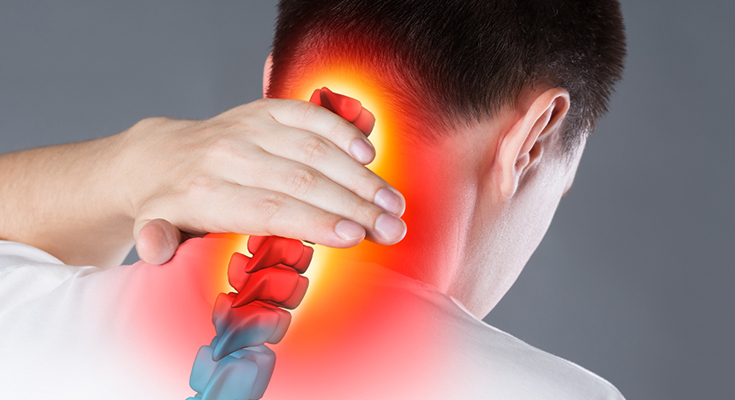Spondylitis: Deal with care and proper Diet
Does your back or neck hurt? Have swelling? - These might indicate Spondylitis. There are different types of Spondylitis classified based on their symptoms and problematic body parts. It mainly affects our bones, and the nervous system and might lead to paralysis so it should be treated at an early stage. The below symptoms may indicate Spondylitis:
- Lower back pain
- Hip joint pain
- Neck pain
- Pain in hands, fingers, wrists, elbows, shoulders, feet
- Joint pains
- Buttock pain
- Heel pain
- Stiffness
- Swelling
- Eye inflammation
- Skin rashes
- Weight loss
- Stomach pain
- Blood in bowel movement
- Naisia
- Dasiness etc.
Most people suffer from Cervical and Lumbar Spondylitis.
While in pain one should never exercise as it increases the pain and make the
situation of Spondylitis even more worse. The patient must consult an
orthopedic doctor, physiotherapist, and neuro specialist if needed. The bedding
of the patient should not be too soft or too hard. The patient must maintain a
proper posture while sleeping, sitting, or walking. The patient must not take
too much stress, bend down, sit down on the floor, push-pull, or lift any
weight.
If one doesn’t get any relief from pain even after taking
proper medication and rest then there must be something wrong with the diet.
Certain foods help us to fight against it and few foods that does exactly the
opposite.
Highly processed eatable items, canned food, sugar, and fat
may increase inflammation. Dairy products like curd also might trigger
irritation for some people. Consumption of alcohol beyond the limit can cause
side effects or other serious issues as it might interfere or interact with
medications. Foods that increase the acid load in the body i.e. red meat, white
potato, artificial food color, and coffee must be avoided. Hot, salty, oily,
and spicy food needs to be avoided as well.
Foods rich in vitamins and omega-3 i.e. seed oils, fish, and nuts help to combat joint inflammation. Calcium, Vit C, and Vit D are very essential as it strengthens the bone. Calcium and these vitamins can be found in milk, dark green vegetables, peas, beans, fish, mushrooms, egg yolks, carrots, lemons, papaya, pumpkin, guava, grapefruits, mango, kiwi, spinach, cheese, broccoli, sunflower oil, etc. Turmeric, ginger, and garlic must be included in the diet as it has natural anti-inflammatory property.
In a nutshell, besides proper medication, physiotherapy, and
rest, one must follow a properly balanced diet to lead a healthier lifestyle.




Good read. Really informative re 😊
ReplyDelete